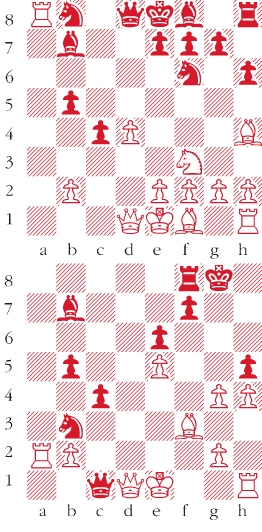The proliferation of short draws in the recently concluded World Championship match has led to some hysterical proposals to adjust the format which decides the supreme title in chess. For the record, Viswanathan Anand of India, the defending champion, retained his title against Boris Gelfand of Israel with ten draws and one win each in the main contest, which was followed by four rapid-play games to break the tie. In the rapid-play games, Anand emerged triumphant with one win and three draws.
Many of the draws were of scant interest and minimal duration. That said, over 100 million internet viewers tuned in to watch the one-day play-off. In spite of this, various eminent commentators have suggested ideas to provoke more combative play in the main part of the match. One suggestion is to ban draws before move 30, while another alarmist solution which has been mooted is to introduce Fischerrandom, or varied baseline chess, to cut out opening theory.
Banning draws in a tournament can make sense, but doing so in a match between two players is unenforceable, since both players would suffer equally from any penalty and the sanction would have no effect. Even more ludicrous is the concept of shuffling piece positions at the start of the games. This would have the disastrous impact of making elite chess incomprehensible to most chess fans.
It is clear to me that even at the refined level of 2700+ grandmaster play, aggressive competitors will always find a way to make a game interesting, as can be seen from the bloodthirsty encounters in the Tal Memorial tournament which followed on in Moscow immediately after the conclusion of the World Championship.
Aronian-McShane; Mikhail Tal Memorial, Moscow 2012; Slav Defence
1 d4 d5 2 Nf3 Nf6 3 c4 c6 4 Nc3 a6 5 Bg5 dxc4 6 a4 h6 7 Bh4 b5 8 axb5 cxb5 9 Nxb5 axb5 10 Rxa8 Bb7 (see diagram 1) This is an imaginative sacrifice of the exchange to gain the initiative and give White endless trouble with his king. 11 Ra1 g5 12 Bg3 e6 13 e3 Bb4+ 14 Ke2 Nc6 15 Ne1 Na5 16 Be5 0–0 17 h4 g4 18 Nc2 Be7 19 Ke1 Nb3 20 Ra2 h5 21 Be2 Bd6 22 f3 Nd5 23 fxg4 Bxe5 24 dxe5 Qb6 25 Bf3 Nxe3 26 Nxe3 Qxe3+ 27 Qe2 Qc1+ 28 Qd1 Qe3+ 29 Qe2 Qc1+ 30 Qd1 (see diagram 2) McShane now declines to take the draw and cashes in on his extremely active forces. 30 … Bxf3 31 gxf3 Qe3+ 32 Qe2 Qc1+ 33 Qd1 Qe3+ 34 Qe2 Qf4 35 Qh2 Qxf3 36 Rf1 Qe4+ 37 Kf2 Nd2 38 Rg1 Qf3+ White resigns After 39 Ke1 Qe3+ 40 Kd1 Nb3 White will soon be mated.





Comments